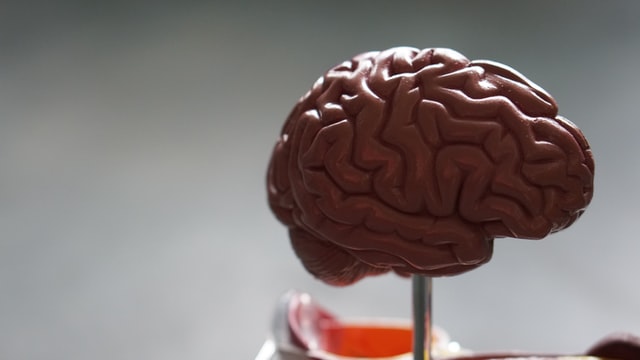It would be an understatement to say addictions are tricky to overcome. The whole process requires an enormous amount of physical and mental energy. However, we know an excellent way to combine the two for therapeutical purposes – and that combination is meditation. In recent years, there’s been an increased use of meditation in addiction recovery. Thanks to its good results, we have realized that its role is more and more significant for therapy.
What is meditation exactly?
Meditation is a strong but simple practice that has numerous positive effects on your health, including alleviating stress and anxiety. Meditation aims to train your attention on a particular object, idea, or activity to reach an intellectually clear, emotionally peaceful, and stable state of mind. The benefits of meditation are numerous and powerful. As a result, it is increasingly used as a form of treatment not only in the field of drug abuse but also in treating mood disorders and general well-being.
The significance of taking a deep breath
The purpose of meditation is to bring the mind and the body into harmony with one another to improve one’s quality of life and general mental health. Increased awareness and connection result from practicing meditation techniques such as taking deep breaths, reciting a mantra (or another concentrated phrase), and concentrating on the breath.
Alt.tag: A sign that says ‘and breathe.’
Caption: People often forget how important proper breathing is for our health.
Therapy based on meditation increases focus and awareness
Meditation treatment practitioners can experience inner calm and contentment in the here and now. A person who has problems concentrating on day-to-day tasks and who craves substances instead might gain present moment awareness via this method by focusing on their breathing. If your practice incorporates yoga, you’ll have a better approach to acquiring well-being and control over your mental activity.
Yoga is a discipline that originated in India. The act of meditation, which is analogous to mindful practice, may assist cognitive behavioral therapy by helping reinforce concentrating on one’s conduct. Last but not least, people may be taught via meditation to accept what is, to put past events into perspective, or establish intention. That is all quite helpful for someone who is going through therapy.
A meditative state can induce a spiritual shift
A spiritual shift or feeling of unity with your higher being can lead to dropping a bad habit. Consistency in meditation can help you reach a spiritual change. However, this transformation is a process and not an easy one. A path to a higher and better self is paved with sacrifice, great effort, and stubborn consistency.
It can help with withdrawal
Meditation may help ground a person experiencing withdrawal-related symptoms like anxiety, sleeplessness, or sadness by soothing the individual’s nervous system and providing them with a sense of serenity. You’ll enable better emotions during awake periods when the nervous system is calm and better overall sleep quality. In addition, people who suffer from emotionally unhealthy thinking patterns due to conditions such as obsessive-compulsive disorder might learn to monitor their ideas without becoming attached to them.
Take control of your urges
The practice of meditation therapy also makes it possible for an individual to reclaim control over their urges actively. For instance, transcendental meditation has been shown to lessen the use of addictive substances, including nicotine, alcohol, and drugs, and the likelihood of relapsing.
Alt.tag: Various drugs.
Caption: Battling physical urges is never easy, but it’s not impossible.
Battle chemicals with natural chemicals
The release of dopamine, often known as “feel good chemicals,” is another meditation component for treating drug misuse. Individuals who are battling addiction are looking for these chemicals. According to the experience of experts at littlecreekrecovery.org, the majority of patients battling addiction that included meditation in their therapy had better results and higher dopamine levels than the individuals who didn’t meditate. This is because naturally released dopamine was enough to make an overall feeling of reward. Being rewarded for something other than drug effects makes an essential difference in overcoming the psychological components of addiction.
Meditation also has the potential to alleviate the symptoms of any comorbid conditions or latent reasons for drug misuse. The most common ones are the need to fill a hole, preoccupation with the worst-case scenario, or feelings of anxiety.
Meditation can keep you motivated
A meditative state is everything but passive. Once you uncover truths about yourself and see the world around you differently, you’ll be open to discovering other senses. You’ll find the drive and motivation to try new things in the meditation process. Meditation is also a good motivation for traveling since unraveling its secrets requires a lot of life experience and exploring different cultures.
Other benefits of meditation in addiction recovery
There are various benefits that meditation offers. Among its many advantages are the following:
- reduction in feelings of despair and anxiety (including social anxiety)
- higher level of concentration
- increased imaginative capacity
- emotional steadiness and composure
- reduced levels of sleeplessness
- strengthening the body
- a greater degree of adaptability
- reduced potential for future relapses
But this is still not everything meditation has to offer. Altering brainwaves via meditation treatment may lead to increased psychological function and a decrease in cortisol levels. The functioning of the frontal cortex may be improved via the practice of mindfulness. This is the region of the brain that is responsible for regulating planning and thinking. Additionally, meditation affects the amygdala, which lessens feelings of anxiety. It also enhances activity in the anterior cingulate cortex, which regulates motivation and motor control.
Alt.tag: A model of a brain.
Caption: Getting your brain into a meditative state can do a lot of good to it.
Bottom line
As you see, the role of meditation in addiction recovery is quite significant. So, don’t fret about trying this method in addition to the treatment you already receive. You won’t lose anything with it, but there’s a lot you can gain.




